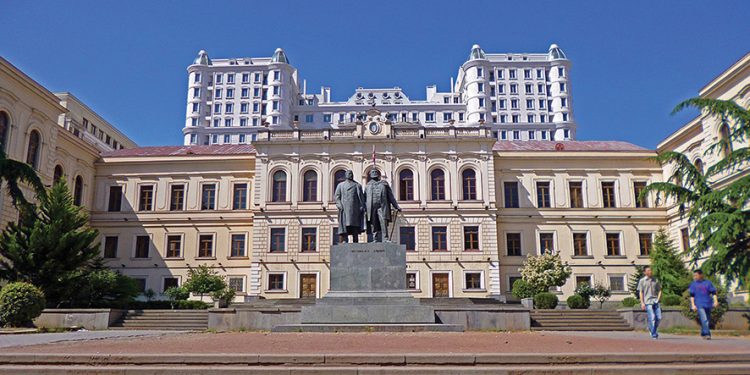Compared to adults in their families and neighborhoods, young people may have less experience, limited knowledge, be overly sensitive, hasty, immature, overly energetic, and behave incongruently. However, they also possess a huge advantage when compared to the adult population: their youth. When all of us, the now-fully-grown individuals, are no longer around, these young people will still be alive and kicking. In about three to four decades, Sakartvelo will find itself in their hands—hands that, at present, may seem slightly unsteady and fragile but which will, in time, become weathered and capable when the moment arrives.
The premonitions that many of us feel overwhelmed by may be telling us something significant. Most of today’s youth, many of whom are naively but passionately protesting for change, are facing a reality that is not always clearly or wisely interpreted by the adults around them—adults who, themselves, are at a certain, hopefully temporary, loss. The best New Year’s wish for any thoughtful citizen of this currently unstable country is likely universal peace and the regained opportunity for successful development—one based on our most cherished spiritual values: national freedom, independence, and a fair, democratic system of governance.
Theoretically, we all know that in this rapidly changing world, development can lead to unexpected outcomes. But there are things that our fragile democratic republic may not be able to withstand. Every society has its limits when it comes to conflict, and crossing certain red lines could bring about disastrous consequences. If our national judgment and our people’s historically accumulated wisdom fail to guide us toward a better future, all that is unfolding across Georgia right now could have the worst possible impact on the nation—one that we have never imagined.
There is something wrong with our national mechanisms of discernment. Hatred between different groups is stoking dangerous conflicts, potentially leading to mutual destruction. Misunderstandings of each other’s words and thoughts are more common than a genuine desire to reach a consensus. The internet is flooded with self-styled “fighters for truth,” each making their own deductions, unwilling to listen to alternative opinions, and rejecting the guidance of sages who could at least attempt to reconcile these zealous groups. All this is happening right before the eyes of teenagers, who have taken to the streets in overexcited swarms, often driven by youthful enthusiasm to “right the wrongs” in a way they believe is most optimal at the peak of their excitement.
This is where the indispensability of relevant education must play its unique role. Well-distributed, carefully thought-out information, delivered within the framework of strong, modern education, could serve as a game changer in the quagmire we find ourselves in today. I sincerely believe that the demands and standards of contemporary, well-calculated education will make a significant difference and give our youth a better chance. Street politics, of which we have plenty of experience, has a role in societal development, but it cannot accomplish everything. The Western civilization that Sakartvelo is aspiring to was largely built through the education of the masses, alongside the cultivation of a culture of labor and behavior. No democracy, no freedom of thought, no fair judicial system, and no overall societal success could have emerged in the West without the long-term, persistent education of all societal strata.
Instinctive fairness and emotional decision-making are not enough to build a better life. Education could be the key to making the necessary corrections on the road to a better life. We can no longer afford to focus solely on physical growth; we need to develop intellectual foundations to address the mistakes already made. There may be other challenges ahead, and without the right education, we will never be able to handle them as we should.
Blog by Nugzar B. Ruhadze














